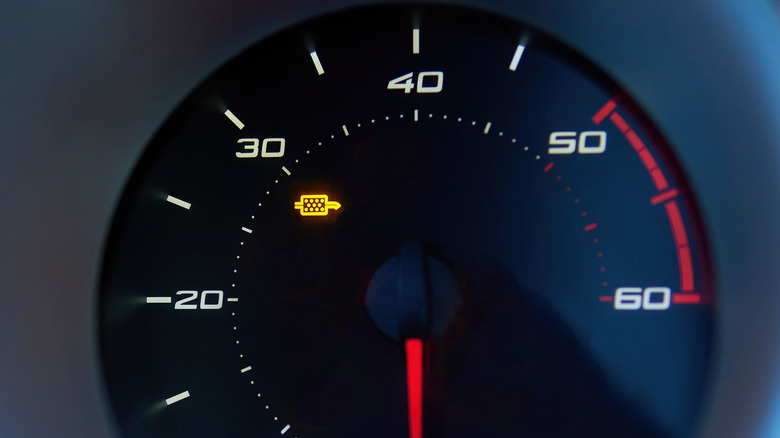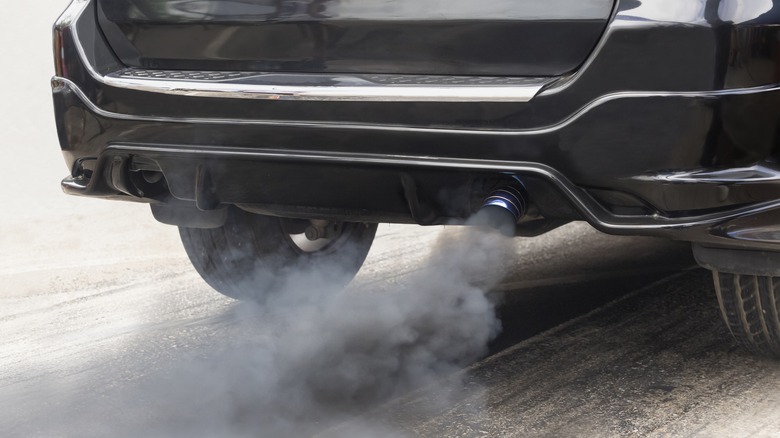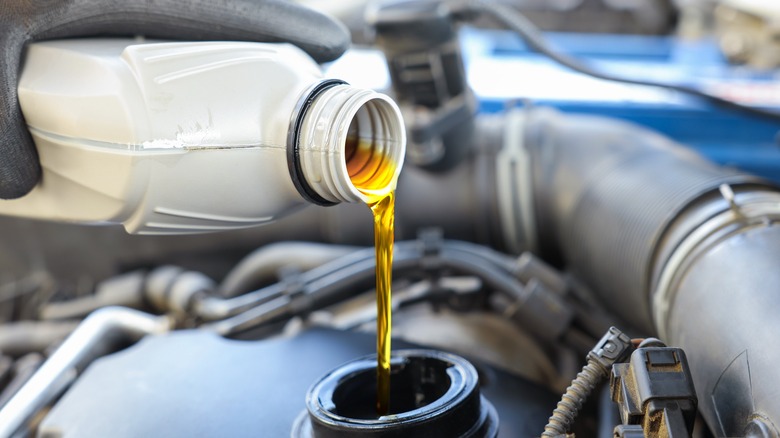This Is The Easiest Way To Avoid Clogging Your DPF Filter
If you've been driving a diesel car made post-2007, you'll most likely be familiar with what a DPF is, as it became a legal requirement for all diesel cars at this point in the U.S. to be equipped with one — much in the same way that a gas car is required to have a catalytic converter. If you're not familiar with what a DPF is or what it does, it's a filter which is designed to capture diesel particulates, and therefore reduce the amount of said particulates from entering the atmosphere, thus improving diesel car emissions. Simply, DPF stands for diesel particulate filter, but it is commonly referred to as a DPF filter.
Here's the issue: DPFs can clog up if too much soot from the engine gets caught up in there, and the results are seriously damaging to the reliability of the car, and to the owner's wallet, too. So, in order to keep a DPF healthy and functioning as intended, it's imperative to ensure it doesn't clog. How can you do that, and how do you know when to take action? The easiest way of stopping your DPF from clogging up, is by simply driving it — although it's not as simple as that, as we'll now explain.
Passive regeneration of your DPF is the easiest way to keep it from clogging
Something everyone should know before buying a diesel-powered car, is that the way you drive it could either prolong or accelerate the time in which it takes for the DPF to clog up. For example, if you potter around town doing short trip after short trip, then your DPF will be filling with particulates faster than you'd like, and it's likely only a matter of time before the DPF warning light illuminates on your gauge cluster.
If, however, you drive on highways day-in and day-out for hours at a time, it's unlikely that your DPF will clog within 100,000 miles or so. This is because sustained driving speed allows what's called passive regeneration . This is something you might not know about diesel engines, it's a process in which the exhaust temperature gets high enough to cleanly burn off the stored soot or particulates. Without longer drives at speed, the exhaust does not reach the desired temperature, and therefore the process of passive regeneration does not begin. If it does, not enough time passes for the process to complete, resulting in a filter full of soot still.
Other top tips to prolong the life of your DPF
There are a few top tips for keeping your DPF clean, and they are of particular importance to those who don't frequently complete long enough trips for passive regeneration to occur. First up is the importance of regularly servicing your car and using the correct oil. Advice outlined by the RAC states "a diesel particulate filter on a poorly serviced car may fail sooner than a well maintained one," and "some oils contain additives that can actually block filters," which is why it's essential to ensure that, not only is your diesel car serviced regularly, but that the correct oil is used also.
The same source then continues to explain that running your diesel car with poor-quality or a low amount of fuel can hinder the DPF's lifespan too, as "a low fuel level as the car may avoid DPF regeneration in order to save fuel." Fuels of a lower quality do not burn as cleanly as they could, which results in more soot being emitted, therefore accelerating the clogging process of your filter.
According to the Universal Technical Institute, a new DPF filter sourced directly from the manufacturer can frequently cost between $3,000 and $10,000, so any savings you're making from using cheap oil and/or cheap fuels is soon lost when the DPF is clogged past the point of regeneration.


